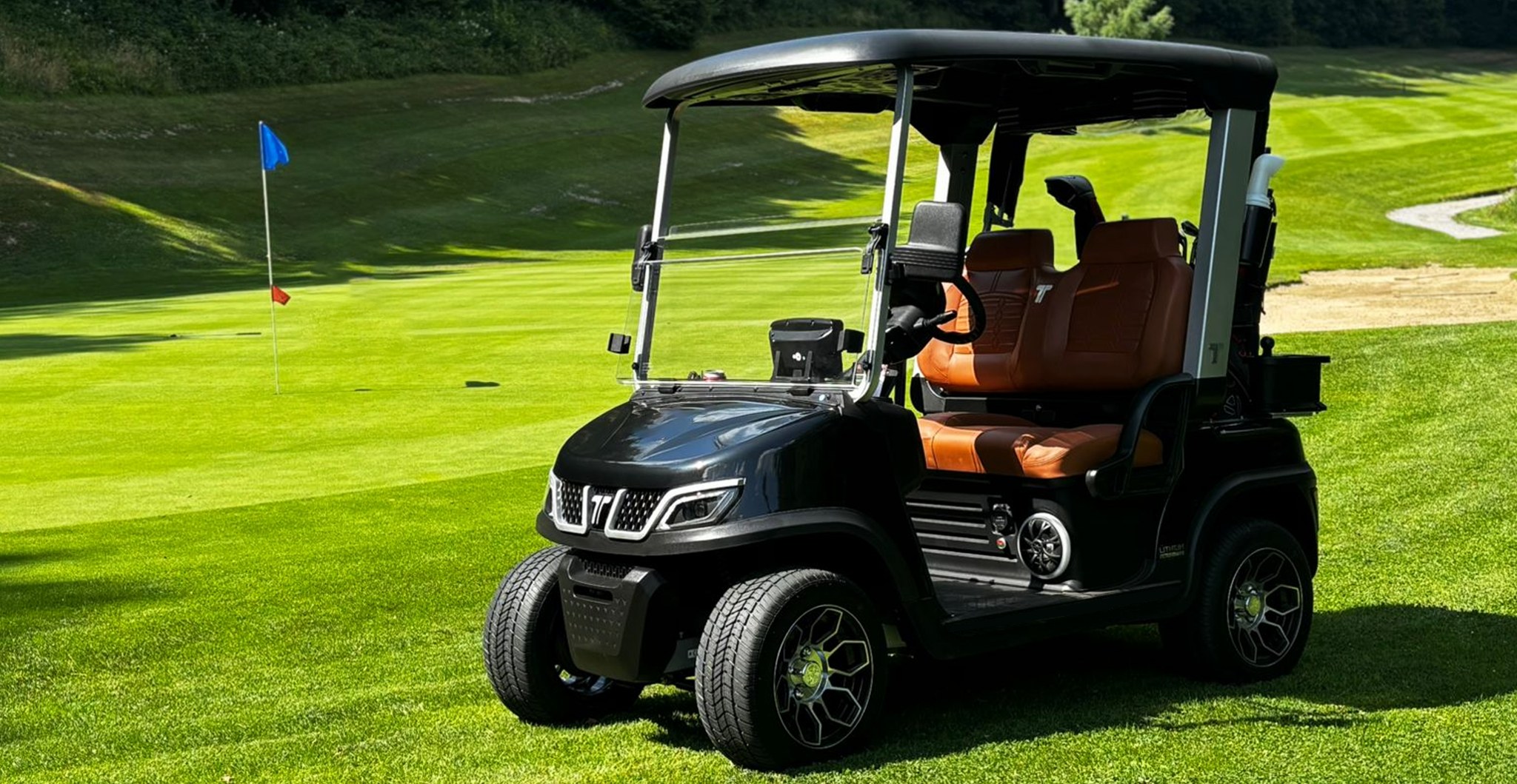With the global development of the golf industry, more and more course managers are considering purchasing golf carts from overseas for more cost-effective options that better meet their needs. Especially for newly established or upgrading courses in regions like Asia, the Middle East, Africa, and Europe, importing electric golf carts has become a common option.
So, what are the key considerations for course procurement managers looking to import golf carts? This article will provide a comprehensive overview of the entire import process and considerations from a practical perspective, helping you make an informed decision.
1. Clarify Usage Requirements: Start with the “Vehicle Type”
Before inquiring and negotiating, the purchaser should first clarify the following questions:
* Fleet Size: Are you purchasing more than 20 vehicles at once, or are you adding new vehicles periodically?
* Vehicle Type: Are you looking for a standard model for golfer transport, a truck-type model for equipment transportation, or a service model like a bar cart?
* Drive System: Do you need a lithium-ion battery electric drive? Do you need smart features like CarPlay and GPS navigation?
* Passenger capacity: Do you need two, four, or six or more seats?
Only by clarifying these basic requirements can suppliers provide targeted model recommendations and configuration suggestions.
2. Choosing the Right Supplier
Importing golf carts is more than just comparing prices. A reliable export manufacturer should possess the following characteristics:
* Extensive export experience: Familiarity with various countries’ import standards and certification requirements (such as CE, EEC, etc.);
* Customization: Ability to customize colors, logos, and features based on course terrain and brand style;
* Stable after-sales service: Can spare parts kits be provided? Can remote maintenance assistance be provided?
* Logistics support: Can you arrange ocean shipping, customs clearance, and even door-to-door delivery?
For example, Tara, a manufacturer with 20 years of experience in exporting golf carts, has provided high-quality vehicles to over 80 countries worldwide, serving golf courses, resorts, universities, real estate parks, and other applications. It has comprehensive export qualifications and customer case studies.
3. Understanding the import regulations of the destination country
Each country has different import requirements for electric golf carts (especially those using lithium batteries). Before placing an order, buyers should confirm the following information with local customs brokers or government agencies:
* Is an import license required?
* Does the battery require special declaration?
* Are there any restrictions on left-hand or right-hand steering wheel configurations?
* Does the destination country require vehicle registration and licensing?
* Are there any tariff reduction agreements applicable?
Knowing these details in advance can help avoid customs clearance difficulties or high fines upon arrival.
4. Overview of Transportation and Delivery Process
International transportation of golf carts is typically done by fully assembled vehicles crated or partially assembled and palletized. The main modes of transportation are:
* Full Container Load (FCL): Suitable for large-volume purchases and offers lower costs;
* Less than Container Load (LCL): Suitable for small-volume purchases;
* Air freight: Higher costs, but suitable for urgent orders or prototype shipments;
Delivery options include FOB (Free on Board), CIF (Cost, Freight and Insurance), and DDP (Delivery to Door with Customs Clearance). First-time buyers are advised to choose CIF or DDP. This arrangement, arranged by an experienced supplier, can significantly reduce communication and risk.
5. Payment Methods and Guarantees
Common international payment methods include:
* Telegraphic Transfer (T/T): Suitable for most trade scenarios;
* Letter of Credit (L/C): Suitable for larger sums and first-time collaborations;
* PayPal: Suitable for sample purchases or small orders;
Always sign a formal commercial contract that clearly defines the product model, delivery time, quality standards, and after-sales terms. Reliable suppliers will generally provide pre-shipment quality inspection reports or assist in arranging third-party inspections.
6. After-Sales and Maintenance Support
Even high-quality electric vehicles are subject to issues such as battery degradation, controller failure, and tire aging. Therefore, when purchasing, we recommend:
* Confirm whether the supplier provides spare parts packages (for commonly worn parts);
* Whether it supports video remote diagnostics and operator training;
* Whether it has a local after-sales agent or recommended partner repair locations;
* Warranty period and coverage (whether the battery, motor, frame, etc. are covered separately);
Under normal circumstances, the life cycle of a golf cart can be 5-8 years or even longer. Excellent after-sales support can extend the lifespan of the cart. Tara not only offers a 2-year vehicle warranty but also an 8-year battery warranty. Its comprehensive after-sales terms and services can eliminate customer worries.
7. Summary and Recommendations
Sourcing golf carts internationally is both an upgrade to operational efficiency and a test of supply chain reliability. Here’s a summary of Tara’s purchasing advice:
* Define the intended use → Locate the supplier → Understand import regulations → Negotiate terms and shipping → Focus on after-sales service
* Partnering with an experienced, responsive, and customizable factory is key to successful procurement.
If you’re planning to import golf carts from China, please visit the Tara official website for product brochures and one-on-one export consultant support. We’ll provide professional and efficient vehicle solutions tailored to your course’s needs.
Post time: Aug-06-2025







